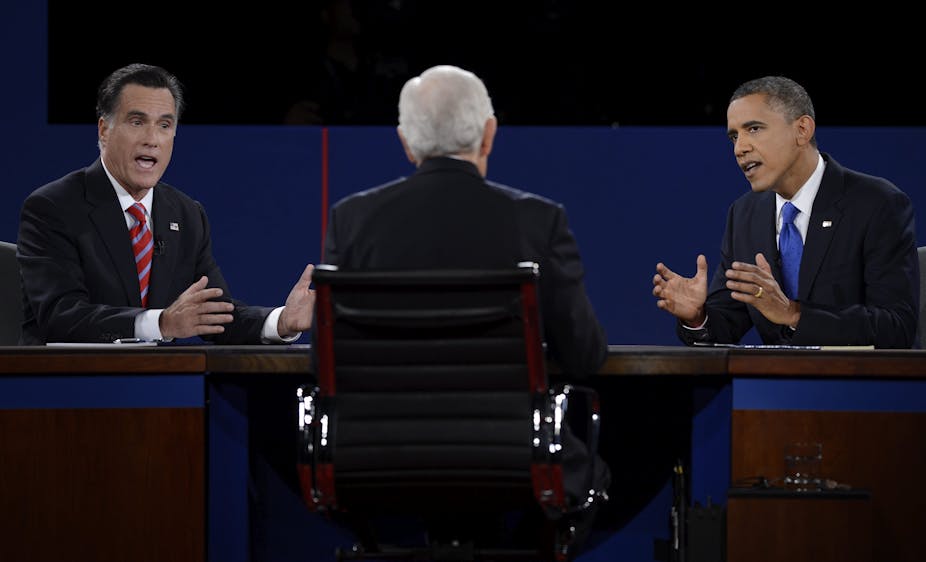The US presidential debates are now over and the experts will run rampant again on various aspects of the debate including deciphering the body language of each candidate. The task becomes being able to separate the insights based on research to those that are not.
Media reported extensively on the many hours each debater put into practising and preparing for the debate. That wasn’t for nothing. Research has shown such training can help.
The final debate - a recap
So how did the candidates go?
While listening, both Mitt Romney and Barack Obama avoided much smirking, yet Romney still displayed it, albeit to a lesser degree. Obama took on, overall, a more neutral facial expression while listening. If, as some political analysts suggested, Romney’s plan was to be more passive and Obama more assertive, each of their nonverbal actions reflected this.
Obama effectively used various hand gestures to stress key words, such as pointing during his concluding comments. Romney used fewer gestures, and those that he did use were often not visible as they occurred below the line of sight the camera angle offered viewers. Romney licked his lips frequently, which previous research shows viewers frown upon.
Regardless of each debater’s planning, I give the nonverbal advantage for this debate to President Obama for two reasons. First, he used a variety of congruent and forceful gestures, and listened more effectively. Second, Governor Romney’s lack of gesturing, numerous incidences of lip-licking, and moderate smirks made his nonverbal communication less effective.
Reviewing each of the previous debates, the following questions can be asked: how do we know what made Obama look ineffective during the first? Were Biden’s constant laughing and disbelief as well as Ryan’s smirk negative or positive? Was Romney too passive during this last debate? The review of the literature below allows you to reflect on each debate and compare the actions to what the research data shares.
Body language research
Research exists (yes, research that is credible in peer-reviewed journals) detailing the connection between specific nonverbal communication and people’s feelings on the candidates that use them. These implications will last much longer than the immediate memories of Vice President Biden’s laughter, Congressman Ryan’s smirk or President Obama and Governor Romney’s pointing.
A review of the research gives insight into what people like and dislike with regard to the nonverbal actions of debaters both while speaking and listening.
Viewers of previous presidential debates have looked negatively on debaters who rolled their eyes, shook their heads, continuously showed disbelief (through frowning or saying “no” or “what?”), sighing, lack of eye contact, lip-licking, failing to coordinate gestures with speech and grimacing.
However, previous presidential debates audiences viewed debaters favourably when they communicated in a dynamic fashion that was immediate, expressive, and energetic; used forceful gestures; maintained eye contact, facial pleasantness and open body positions; nodded their head and spoke fluently.
It’s also worth keeping in mind that some people are unaware of their biases and this affects their judgements when analysing nonverbal communication. Being informed of the above research helps increase the ability to accurately analyse nonverbal communication actions. Being aware of our biases helps prevent them from disturbing accuracy.
Beyond the debates
I have previously mentioned the importance of charisma, professionalism, and rapport being needed to be successful and effective in your profession regardless of what you do for a living.
This ranges from working at Hungry Jacks to being employed in academia, real estate, and everything in between. Everyone is negotiating constantly both formally and informally, and nonverbal communication plays a pivotal role in this. It’s not just your actions either; being observant of the other people’s nonverbal actions gives greater insight into their emotions.
After the dust of the final debate settles and a US President is decided in just two weeks, this research (and dare I say my analysis) can continue to help you in your life. However, before the dust gets too settled, feel free to share your thoughts on the research (trust me, many others already have) and let me know your thoughts on this final debate.

